#girmitya
Explore tagged Tumblr posts
Text

the story of Mahadeo:
'I was sixteen when I came to Fiji. I was unmarried and an orphan; my parents had died in some epidemic. In India I had made a living out of grazing cattle and getting food and a place to stay but no money in. return. I lived a life which was not one of great hardship except when there was sickness about. I used to get sores but there were no doctors there to provide treatment.
I came to Fiji because I was lured. I met a man who asked me if I was looking for work. I answered in the affirmative and he told me that I would have to go by train from place to place carting and unloading goods. When I was offered the job I did not go back to tell anybody, I accepted it. I had nothing, neither money nor kinsmen.
I travelled a day and a night before arriving in Calcutta. There were a lot of people at the depot there; men, women and even children. I stayed there for a week and was examined medically. All one did at the depot was to eat and stay in one’s own place. Blankets were provided for sleeping. There persons of all castes ate and mixed together, unlike in the village where people of different castes ate separately. I was told the distance from Calcutta to Fiji. wanted work and I would have come had I been accurately informed that it was a month’s journey by sea. I was also told that I would get twelve annasa day.
There were around 200 migrants on my ship. I had quite a good trip and did not bet sick. On board we were required to scrub the ship each day. I was busy for about half an hour performing this chore. Some people sang and danced.
Once we reached Fiji I was sent to Cuvu via Lautoka. In Cuvu we were given our work tools. I was set the task of cutting grass, a chain long and a chain wide. In this work of weeding we often pulled out the grass and our hand- used to get cut. If we did not finish our task our money was not paid because we had not completed our work. We also had to dig drains: for this purpose we were paired off, one new and one old hand. The old hand with me refused to show me how to dig drains. The sardar told me that I had made a mess. My shipmate, who made a similar blunder, was given a thrashing by the overseer.
Sardars used to give the task. If we did not complete them thesardars used to give us a rough time. If one could not do one ‘s work, then one got a beating. I was beaten by sardars but never was I able to beat up one of them. I do not recollect anyone on my estate hitting a sardar or an overseer.
There was a South Indian with us. He used to do a lot of singing and dancing but he was not able to work and he used to get a terrible beating from the overseer. So he took off into the bush and hanged himself. I know of two persons who committed suicide because they could not do the work and were regularly beaten by the overseer.
The sardars used to wake us up at 2am. At 3am we had to line up and go to our task. One had to fill up one’s billy-can with food and pick up one’s tools and then move out. They gave us a very rough time in those days.
We used to think of home. But what was the purpose of it. Home was so far away and if we wanted to go we could not because we had no money. I saved no money during my indenture. Besides, in any case I had nobody in India, so for me there was no place or person to return to.
I once stayed in hospital because I had a sore on my leg. I was well treated there. The doctor there suffered hardship sometimes. He often used his own money to feed people.
During week-ends I used to visit time-expired migrants living in the neighbourhood. There were a lot of Indians nearby who were devoted cultivators. And I used to spend a lot of time at my friend’s place. I used to spend all day there and then return in the afternoon to my room. The ‘free’ were very good to us; they used to give us milk, yoghurt and food, in return we used to help these people a little with their work.
When we first saw Fijians we called them junglees. Some of the Indian indentured labourers from the early times used to regard them as such.
We used to get a holiday for Holi but not for Diwali. Those who knew how to read and write sometimes taught us to do likewise.
Hindus and Muslims got on well. They did not fight. There was no conflict over Muslims slaughtering cows. Each person ate his own food. We went to each other’s place and were not concerned about any religious taboos.
Once I was urinating outside the toilet, the overseer,, apparently, caught me in the act through his binoculars from his bungalow. He came down to the stables and called me out. Then he locked me in a room and asked why I had urinated outside and not in the toilet; he then beat me by kicking me all over the place. This is how we suffered during the indenture period.'
http://girmit.org/the-girmitiya-stories/mahadeo/
more about Fiji Indian Indenture: TheIndentureHistory (ig)
#indentured labour#indentured servitude#indentured servant#indentured#indenture#girmit#fiji girmit#girmityas#girmitya#fiji#fiji indian#fijian indian#indo fijian#coolie#coolies#india
13 notes
·
View notes
Quote
Between 1838 and 1917, over one million Indian immigrants were taken from villages of Uttar Pradesh, Bihar, and Tamil Nadu, for indentured labourership. These included Hindus across castes and Muslims as well. They were often called Girmityas after the term, girmit, which was the Indian way of pronouncing the word, agreement. More pejoratively, they were called Coolies. The immigrants, however, often did not know that they were migrating to a different country. “Some thought they were leaving Calcutta and going to Madras or Mauritius,” said Vinay Harrichan, 24, host and producer of The Cutlass podcast, which focuses on the history and experiences of the Indo-Caribbean community. “They thought they would be able to bring back riches and gold for their families and that they were going away for only a few years,” he adds. This deception was intentionally fueled by the recruiters who brought these villagers to Calcutta. Some were even kidnapped and forced to go against their will.
Garima Garg, ‘A Voyage Less Ordinary’, India/भारत
#Garima Garg#India/भारत#India#Indian immigrants#indentured labour#Uttar Pradesh#Bihar#Tamil Nadu#Hindus#Muslims#Girmityas#girmit#Coolies#Calcutta#Madras#Mauritius#Vinay Harrichan#The Cutlass#Indo-Caribbean community#kindap
22 notes
·
View notes
Text
My Making Journey part 3. Key Information
Key points and information for Girmitiya Collage
‘The Coolies lived in tin shacks called limes, built-in long rows beside the plantation. It housed about 3 individual men or one man and his entire family’ (Coolies).
‘Many diseases such as cholera, malaria and typhoid wiped out hundreds of Indians’ (Coolies).
60,965 Indians were transported to British Fiji from a period of 1879 til 1920, 41 years (History).
‘1879, The ship set sail in Calcutta on March 03 and arrived in Fiji on May 14, with 373 male and 149 female labourers’ (History).
1882, Colonial Sugar Refining (CSR) company of Australia sets up its first sugar mill in Nausori. Second migrant ship arrives in Fiji’ (History).
The indenture was a traumatic experience for all those helpless Indians, living in confined spaces with people from different religions dialects from India who could understand each other.
Keywords
Girmit. (agreement)
Girmitya.
Nausori (Fijian City).
Calcutta (Indian city).
Colonial Sugar Refining (CSR).
Black birding (using deception or kidnapping people to work as slaves labourers).
Coolies.
Indenture.
Indentured labourers.
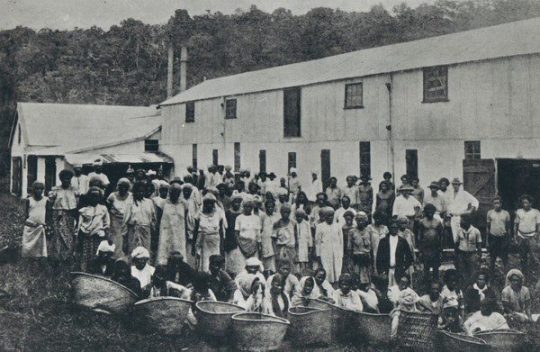
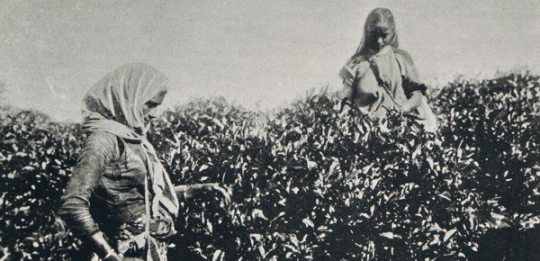
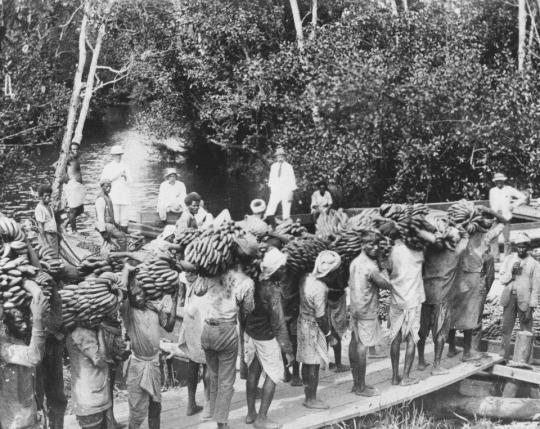
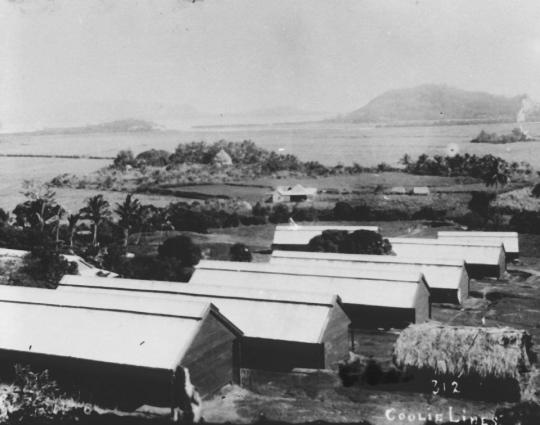
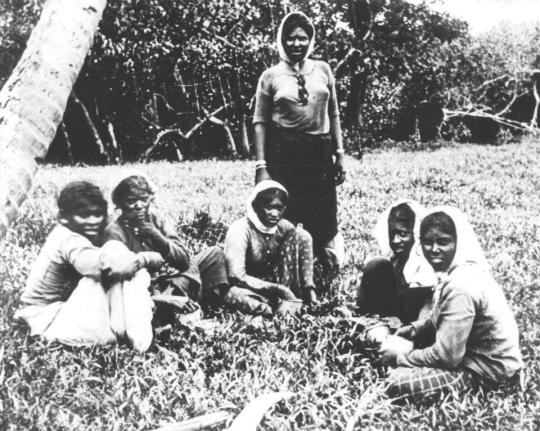
Image source: http://girmitiya.girmit.org/new/index.php/rare-images/.
Works Cited:
Coolies: How British Reinvented Slavery. BBC Four Corners Documentary, 2002
History. New Girmit.org,http://girmitiya.girmit.org/new/index.php/history/. Accessed 4 May 2021.
Rare Images. New Girmit.org, http://girmitiya.girmit.org/new/index.php/rare-images/. Accessed 4 May 2021.
5 notes
·
View notes
Text
RESEARCH LECTURE
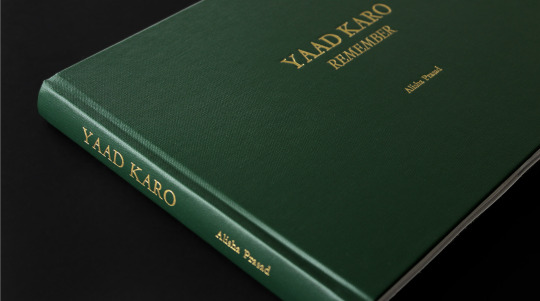
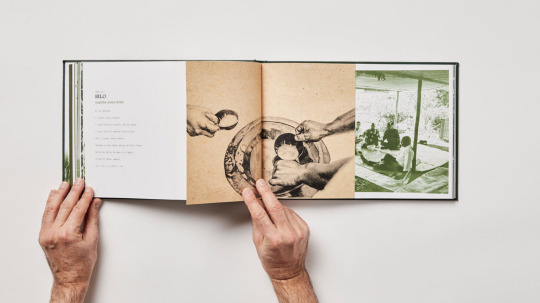
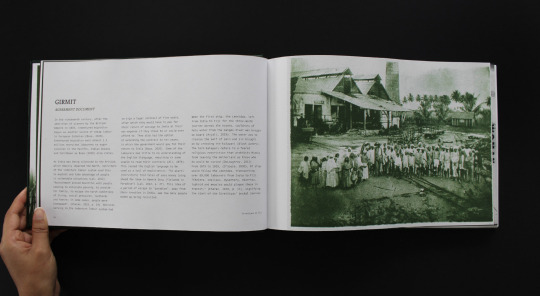
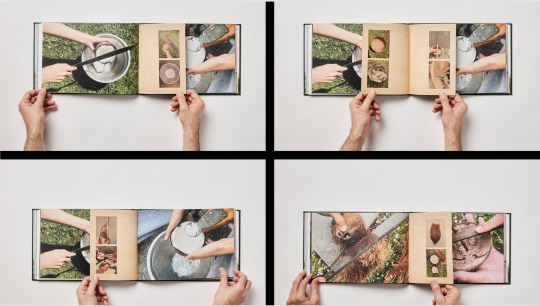
The work of Alisha Prasad - Yaad Karo
This was one of the examples shown in the Monday lecture. This was design research and process insights and inspirations from BEST Awards nominated Communication Design Alumni: Alisha Prasad. She talked about making connections between research, context and practice. This was super insightful to see as her research practise was so super thoughtful as well as close to her heart. I this the mix of image making from phtoographs, the cut outs and the use of different printed materials made the publication tie together with the topic also.
Further research on this project:
Description copied from Best Award website:
Yaad Karo is a publication that tells the stories and lived experiences through significant objects of Indo-Fijian Girmitiyas (Fiji Hindi word for Indentured Labourers brought from India to Fiji by British colonial forces). As a descendant of Girmitiya, this publication is about connecting through my design to my community, history, and ancestors, and aims to contribute to the collective understanding of the history of Indo-Fijian indentured labour.
Girmit was an indentured labour system that started in 1833 as an alternative source of cheap labour to European colonies after the abolition of slavery. Up until 1916, over 60,500 indentured labourers from India were transported to Fiji to work on sugarcane plantations. On the plantations, the Girmitiyas were faced with an onslaught of gruelling circumstances and harsh conditions but through this they showed strength, courage and resilience.
Yaad Karo inquires and explores how object making can convey oral histories and personal stories of not only my family but my ancestors as well. I researched, designed, and made the objects through the methodological frameworks of embodied cultural practice, oral histories and being an insider researcher.
The work showcases the journey of the Girmityas over the kala pani (black water), their lives on sugarcane plantations and what got them through the exhausting labour required of them. Due to erasure of Indo-Fijian history, engaging with these cultural objects through researching and making is one of the only ways in which I can connect to my ancestors and histories. For young Indo-Fijians who are a part of the diaspora, who may not have a deep comprehension of their own ancestral history, this publication acts as an entry point into greater discussions and learning.
Yaad Karo in Fiji Hindi means to remember, it is an act. The title is a call to action for the Indo-Fijian community to remember our histories which have all but been erased. Yaad Karo is calling on us, descendants of indentured labour, to remember and engage with our collective past.
https://bestawards.co.nz/graphic/student-graphics/aut-art-design/yaad-karo/
0 notes
Text
Girmitiyas Boarding Passes, 35mm Film Trailers, WHO Mortality Database, More: Monday ResearchBuzz, May 16, 2022
Girmitiyas Boarding Passes, 35mm Film Trailers, WHO Mortality Database, More: Monday ResearchBuzz, May 16, 2022
NEW RESOURCES Fiji Village: Database launched to view boarding passes of Girmitiyas. “Descendants of Girmitiyas can now go online to look at the boarding passes of their ancestors who came to Fiji… Developer, Akhilesh Shiuram says they wanted to create a database that has records of passes of more than 60,000 Girmityas that came to Fiji in the 37 years of the indentured labour system.” Girmityas…
View On WordPress
0 notes
Text
In his ‘homecoming’, Roy Krishna shows Kolkata the way
In his ‘homecoming’, Roy Krishna shows Kolkata the way
[ad_1]
Written by Mihir Vasavda | Updated: February 11, 2020 5:21:52 pm


Roy Krishna has scored almost half of ATK’s goals this season – 13 out of 30 they have scored. (Source: ISL)
Roy Krishna’s family was among the thousands of Girmityas who left Kolkata and moved to Fiji. Roughly 140 years later, Krishna, 32, has…
View On WordPress
0 notes
Photo

by Sacintya Mohini Simpson.
227 notes
·
View notes
Text
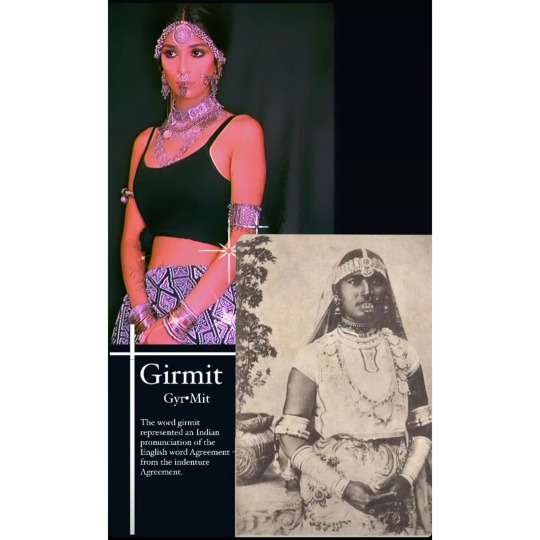

'Our Fijian culture is like none other, our language is our own, created to communicate from one person to another. Our identity is our own, carrying on from generation to generation.'
credit- ig: britts__
#indentured labour#indentured servitude#indentured servant#indenture#indentured#girmit#fiji girmit#girmityas#girmitya#coolie#coolies#fiji#indo fijian#fiji indian#fijian indian#india
13 notes
·
View notes
Text

the view from my grandparent's place in Fiji. this is the real Fiji, the one I know & love. ❤️
16 notes
·
View notes
Text

a beautiful poem on indenture that spoke volumes to me.
by Reshma Sookha
#indenture#indentured#indenture system#indentured servitude#indentured servant#fiji#indo fijian#fijian indian#fiji indian#india#indian#girmit#girmitya
6 notes
·
View notes
Text
Thoughts on Indian Independance Day - from a Girmitya descendant.
As a Girmitya descendant, my feelings/thoughts on Indian Independence Day have always been a bit messy. There’ve been years when I’ve felt very strongly about it and there’ve been times when I’ve felt almost completely disconnected from it but August 15 has always been a day when my ‘annoyances’ have surfaced, one of them is the feeling of not being ‘Indian enough’.
I felt like I’ve always had to prove how Indian I am and also I feel like there’s a certain view in which India Indians view Girmitya descendants. Its like we’re are not Indian enough hence not good enough.
One thing I am grateful for is the fact that Girmityas broke away from the shackles of caste - they had no choice but to forge a new brotherhood to survive. I’ve asked myself why I feel so strongly about this and its because in so many ways I am Indian. I feel strongly about certain Indian values and staying/being connected to my culture.
The thing is, even ‘my culture’ is messy. What is my culture? I know virtually nothing about Fijian culture, everything I do know is Indian. This feeling of ‘not enough’ has had me constantly doing research about Indian culture so I come across as ‘Indian’ to others and today I’m asking myself why. Do I even want to be seen/perceived as ‘fully’ Indian? Honestly, I don’t know. This doesn’t take away the fact that I do have a lot of pride about being Fijian Indian. My culture is unique. My ancestors did back breaking work to survive for little to no money and yet they chose to stay in Fiji. Maybe they didn’t have the means to go back or maybe they just didn’t want to. I’ll never know but I’m glad that they stayed.
There are certain things/events that have occurred in India that have bugged me for various reasons because ultimately, its where I come from and I don’t know if my fellow Fijian Indians have been/are affected the same way I have. I think whatever happens – good or bad, it’s a reminder to keep learning and to better understand myself. To sum it up, when I think about Indian Independence Day today, it doesn’t have any effect on me. At least I don’t think it does.
What I do think about is Fiji and how Girmityas made a life for themselves in this land that they found themselves in. I think about how my life could’ve been very different if one of my forefathers decided to not to board that ship to Fiji.
My annoyances stem from the fact that Girmityas have been and still are overlooked by India and unfortunately, I don’t think this’ll change. Its sad because its very much a part of their history but it is simply not talked about and very honestly even if it was, I don’t think it would make much of a difference to the larger population.
Indian Independence Day has me thinking about how we as individuals can be independent, there are the obvious ways but I think most important is to be independent in the way we think – to break way from whats been passed down to us and think from a detached viewpoint, think about how we can improve while still honouring our roots.
I realise that I have many identities and they come together in a messy way. I also have a lot of learning to do.
#girmitya#girmit#indenture#indenture system#indentured servitude#indentured#indentured labour#fiji#fiji indian#fijian indian#indo fijian#india#indian#coolie#coolies
5 notes
·
View notes
Text


A poem by Ramon Narayan after digging through his family history in Fiji ❤️
#indenture#indentured servitude#indentured servant#indenture system#indentured labor#indentured labourers#fiji#indo fijian#fijian indian#fiji indian#girmit#girmitya#fiji girmit
4 notes
·
View notes
Text
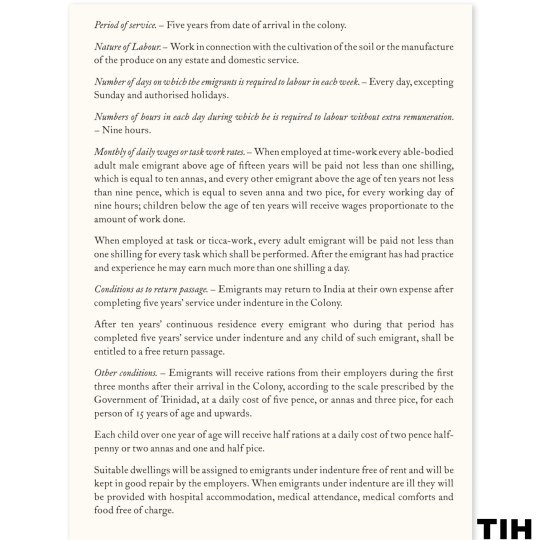
a set of typical terms and conditions of an indenture agreement.
source:
more on TheIndentureHistory (ig)
#indenture#indentured#indentured servitude#indenture system#indentured servant#girmit#girmitya#fijian indian#indo fijian#fiji indian#fiji girmit
2 notes
·
View notes
Text
To my great grandpa.
(note: my great grandparents were indentured labourers from India and worked + settled in Fiji)
-
I’ve tried to write this many times and each time I cannot wholly express myself. I want to express my gratitude, its hard to explain how grateful I am for this life, for the luxuries I have. Early on I realised that everything is connected – if you had not made that decision to board that ship all those years ago, I wouldn’t be living the life I’m living. I have a life filled with opportunities you may have never even dreamt of. I’ll never know if you were tricked into getting aboard or if it was your decision but regardless, if you could listen to me, I’d like you to know that I am aware of the hardships you went through – I will never fully understand it but I am learning.
Its overwhelming to read about the pain you went through as in my mind, you were a proud man from Sialkot. In my mind, you were an honest and hardworking man. I wonder all the time, if you had any expectations for your descendants, what you would’ve wanted for us. I think we turned out okay – more than okay, we’ve succeeded and persevered. Our perseverance comes from you. Through everything, you persevered, through the humiliation, the injustice and the back breaking work, you persevered, and I am so proud to be your descendant. You have taught me strength and dignity. I will never be able to bring you justice, but I constantly try to bring awareness.
You boarded a ship to Fiji, not knowing what lay ahead of you, you worked on plantations, sowing seeds and along the way you planted the foundations of our family. You gave us a home, a home where today, your great, great grandchildren live and experience life. Each visit to Fiji is a reminder of where it all started, where my roots are. Its a blessing to have such a tangible connection to my roots.
You may have wanted to do something entirely different with your life, you may have had unfulfilled dreams and this gives me an incredibly hollow feeling but it also gives me purpose/strength to not waste my life and the opportunities that come my way. I was raised in a household where not being independent was/is not an option and this value runs deep in my family. You survived the shackles of slavery and you showed us the value of independence.
It starts and ends with you, you’re the greatest of all time. Rest easy while we bring honour to you.
#indenture#indentured servitude#indentured servant#indenture system#fiji#fijian indian#indo fijian#fiji indian#girmit#girmitya#coolie#coolies#india#indian#writer#writing#letter
2 notes
·
View notes
Text
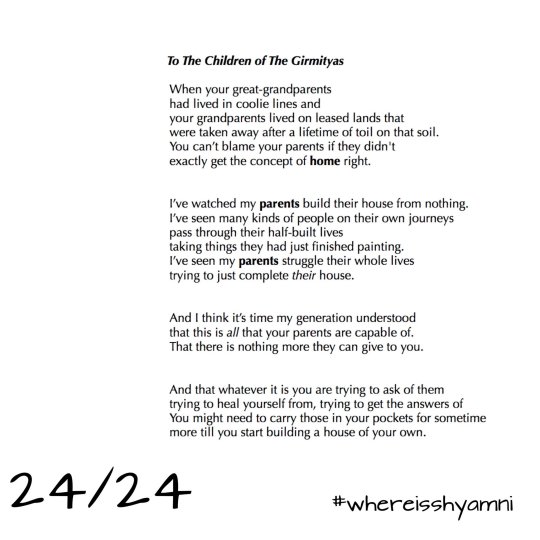
written by @ / maharishisharon (ig) 👌🏽
#fiji#indo fijian#fijian indian#fijian#fiji indian#girmit#girmitya#indenture#indentured#indenture system#indentured servitude#indentured servant
4 notes
·
View notes
Text
Broken Shackles.
heard this song probably a good 10 years ago, it was my first audio introduction to the history of my people and made a huge impact, it was like listening to my own feelings.
more on TheIndentureHistory (ig)
youtube
#indenture#indentured#indentured servant#indentured servitude#indentured labour#fiji#fiji girmit#girmit#girmitya#girmityas#coolie#coolies#india#indian#fiji indian#fijian indian#indo fijian#Youtube
1 note
·
View note